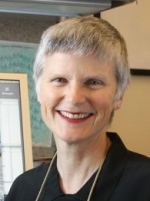
Dr. Leslie Jarmon
This time, as it has several times before, the Thanksgiving season came with mourning, too. Wednesday I learned that Leslie Jarmon had passed away the night before, on November 24. The news shook me. I’d had no idea Leslie was sick. I had followed her progress with a major grant to develop areas in Second Life as distance education affordances for the entire University of Texas system, and I was looking forward to seeing the project get underway. Selfishly, I hoped I’d have a chance to work with Leslie at some point on the project. For I was, and am, a fan of Leslie Jarmon–after being in her presence for one day.
Here, in brief, is that story.
Last year about this time I went to a regional meeting of the Texas Faculty Development Network at Texas A&M. I’d been at Baylor about three months. Baylor had just joined the TFDN. The whole experience was new as new could be for me. The meeting was very cordial and the folks there welcomed me with fine hospitality. At the end of the day, at a public lecture, I got to hear a great Nobel-prize-winning scientist talk about teaching. A memorable trip in every way. But the climax was meeting Leslie Jarmon.
As I recall, the meeting was about halfway through when we took a lunch break. During the break, the talk turned to online education. Suddenly, I heard the words “Second Life.” Looking up, I saw a preternaturally alert woman at the end of the table. Her eyes had enough light in them to illuminate the entire room. She spoke with warmth, intelligence, and urgency about the opportunities virtual worlds presented to all educators–and to students too. I felt such a passion for creativity and connection radiating from her. And I felt a jolt of energy coming through me as well.
So we began to talk. I learned of her work, of her time with the Peace Corps, of her plans for innovation in faculty development at UT-Austin. The more we talked, the more energetic and inspired I became. I soon forgot all my newbie cautions and began to chatter excitedly (those of you who’ve been around me know that moment).
I forgot myself. A lovely, lovely forgetting.
At some point, I brought up Robbie Dingo’s “Watch the World,” one of my favorite works of video art (I’m not sure what else to call it). My bringing up something so dear at that moment testifies to the way Leslie put me entirely at my ease–but it also testifies to a rare gift for sounding the depths in a person she’d just met. Leslie’s animation matched with my impulsiveness led the meeting organizers to play the video for the group. By the end, I was teary, as is usually the case when I watch that video. Leslie just smiled at me, a smile full of shared understanding. An extraordinary smile.
The meeting rolled on after that. We decided on various aspects of the upcoming year for TFDN. We discussed other topics. The whole time, though, I was alight with the happiness of having met someone who not only understood, but who would also teach me.
At the end of the day, we said our goodbyes. They were cordial goodbyes, and a little weary as well, given that we’d been working away at the discussion all day long. I prepared myself mentally for the upcoming lecture and the ensuing drive home to Waco. And at that moment, Leslie surprised me again, this time with a big hug and a smile that could melt the ice caps on both ends of the earth. In short, she touched my heart and soul.
I looked forward to our next meeting and to the conversations ahead, but alas these were not to be. Yet regret is not the moral of this story. You know the moral as well as I do. A few hours in the presence of an honest, full-hearted, extraordinary person can mark one’s life forever. And for that I am very thankful.
As I see other tributes to Leslie on the web, I see that my story is far from unique. I can’t say that I’m surprised. Remarkable people are pretty much full-time. That her middle name is “Hope”–something I learned from her obituary–makes the poetry of her life complete. That I learned of her death from a comment on my blog makes the poetry of our meeting complete.
There’s a memorial to Leslie in Second Life: http://slurl.com/secondlife/Educators%20Coop%205/63/98/44. Her avatar’s name was Bluewave Ogee.
I grieve for her passing and offer my condolences to all her family and loved ones. And I give thanks for this remarkable person who made a shy newcomer’s heart swell with joy and excitement on a December afternoon one year ago.

